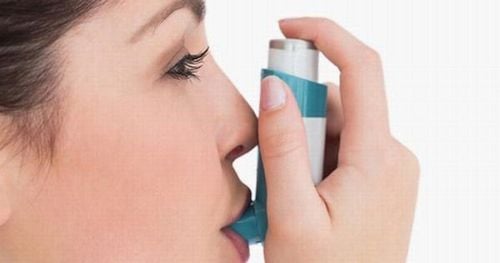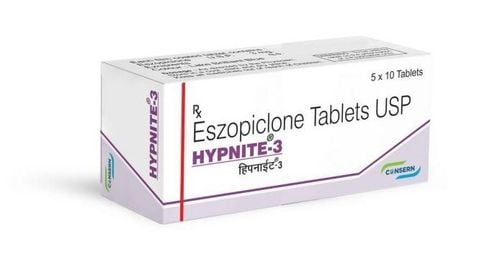This is an automatically translated article.
You want to go to sleep - but just as you fall asleep, a cough wakes you up. Coughing at night can cause discomfort and insomnia. So what to do if you have a cough and can't sleep? The following article will help you learn the causes of nocturnal cough and how to fix it.
1. Why do you have a cough at night?
People can get a cough at night - known as a nocturnal cough - for a variety of reasons. The body has a cough reflex to protect us by removing mucus and foreign objects from the trachea and lungs. In general, coughing has the same function whether occurring at night or during the day. Coughs can be caused by many different conditions and circumstances. If you clearly understand the cause of your cough, it can be easier for you to choose an effective remedy.
Common causes of cough to insomnia:
Asthma Allergies: If you only cough at night, you may be allergic to something in your home, such as dust mites. Colds and flu Bacterial infections such as pneumonia and bronchitis Postnasal drip syndrome: When you are sick, your cough may be worse at night due to postnasal drip. Postnasal drip is a condition in which secretions run down the back of the throat instead of out of the nose. This symptom often accompanies colds, as well as flu, allergies, and sinus infections. Lying on your back can worsen a runny nose, which may be why you notice your cough is worse at night. Smoking: Smoking or inhaling secondhand smoke can also give you a cough Using certain medications, such as ACE inhibitors, beta blockers, and some nonsteroidal anti-inflammatory drugs (NSAIDs) Lung disease Chronic obstructive pulmonary disease (COPD) Gastroesophageal reflux disease (GERD), heartburn: If you have heartburn, lying down can trigger a cough if stomach acid leaks into and up your esophagus. A small amount of acid enters the back of the throat, causing enough irritation to cause a cough. You can try an over-the-counter heartburn treatment first, and then see your doctor if that doesn't work. Cystic Fibrosis Whooping Cough

Giải đáp ho không ngủ được phải làm sao?
2. How to improve a cough at night
2.1 Cough with phlegm
Cough with phlegm, usually associated with too much mucus in the chest, throat and mouth. The following tips may be helpful for you to improve your nighttime cough:
Elevate your head and neck: Sleeping on your back or side while sleeping can cause mucus to build up in your throat and cause coughing. . To avoid this, prop up some pillows or use a wedge to slightly raise your head and neck. Avoid elevating your head too much, as this can lead to neck pain and discomfort. Use an expectorant: An expectorant thins the mucus in your airways, making it easier to cough up phlegm. If your cough is caused by a cold or bronchitis, studies show that guaifenesin can be a safe and effective treatment. However, you need to see your doctor to use the medicine properly. Swallow some honey: Honey is known to have many protective effects, including antiviral, antifungal, and antibacterial. In a 2013 study, 1/2 teaspoon of honey before bed helped people with a cough sleep better. Before using cold medicine, experts recommend that parents give honey to children over 12 months of age as a safer treatment for upper respiratory infections such as colds. For non-infant infants, taking honey at bedtime has been shown to reduce the frequency and severity of nighttime coughs. Drink a warm beverage: A slightly warm beverage can help soothe a throat irritated by a cough and also loosen mucus. Warm water with honey and lemon, herbal tea, and broth are all good choices. Make sure to take it at least an hour before bedtime. Take a hot bath: Steam from a warm shower can help loosen mucus in your chest and sinuses and clear your airways.
2.2 Dry cough
A dry cough can be associated with conditions like GERD, asthma, postnasal drip, ACE inhibitors, and upper respiratory tract infections. Less commonly, a dry cough can be caused by whooping cough.
The following tips may help relieve a dry cough at night:
Try throat lozenges: lozenges can be sold in pharmacies and retail stores, and they come in a variety of flavors. Some contain vitamin C and some include medications that can soothe a sore throat. Whichever one you try, remember not to suck it in before lying down to avoid choking. Avoid giving lozenges to young children as they can cause airway choking. Consider decongestants. Decongestants can help dry up nasal discharge that can cause a persistent cough at night. Do not give decongestants to children under 12 years of age because they can cause serious complications. Cough suppressants help stop coughing by blocking your cough reflex. Medicines can be helpful for dry coughs at night, because they can prevent the cough reflex from triggering while you sleep. Drink plenty of water: Drinking enough water is especially important when you feel uncomfortable from a cough. Drinking fluids during the day can help keep your throat lubricated, which can help protect your throat from irritants and other cough triggers. Just make sure to stop drinking liquids at least an hour before bed to avoid going to the bathroom during the night.

Đồ uống hơi ấm có thể giúp làm dịu cổ họng bị kích thích do ho
2.3 Irritated cough
If you cough at night due to allergies or postnasal drip, you may have trouble sleeping because the cough is itchy or irritating. Here's what you can do to ease the condition:
Use a humidifier: Air that is too dry can irritate your throat and leave you with a constant cough. However, be careful not to over-humidify the air. Allergens such as dust mites and mold can be aggravated in humid air, and asthma can sometimes be aggravated by humidity. To ensure that the humidity in your sleeping space is at or near the recommended 50% level, consider using a hygrometer to accurately measure humidity levels in the air. Clean bedding regularly: The American Academy of Asthma, Allergy, and Immunology recommends washing bed sheets, mattress covers, blankets, and pillowcases in hot water, at 130°F (54.4) °C) or higher, once a week. If you're allergic to pet dander or pet saliva, it's best to cuddle during the day and keep your pet out of the bedroom at night. Try an oral antihistamine: Talk to your doctor about taking an over-the-counter (OTC) or prescription medication that blocks the body's production of histamine or acetylcholine, both chemical mediators that trigger coughing. In conclusion, nighttime coughs can be uncomfortable, but there are effective treatments to reduce their severity and duration so you can sleep more peacefully. If your cough is caused by a cold, flu, or allergies, you can ease it by trying some simple home remedies or taking an over-the-counter cough, cold, or allergy medicine. If your symptoms persist for more than a few weeks or worsen, see your doctor for diagnosis and treatment.
Please dial HOTLINE for more information or register for an appointment HERE. Download MyVinmec app to make appointments faster and to manage your bookings easily.













